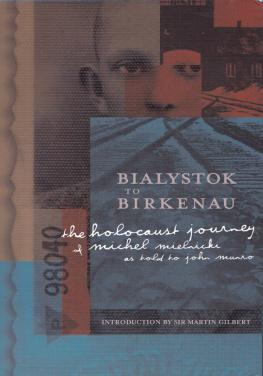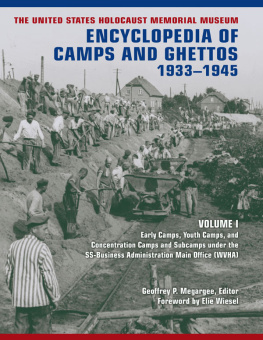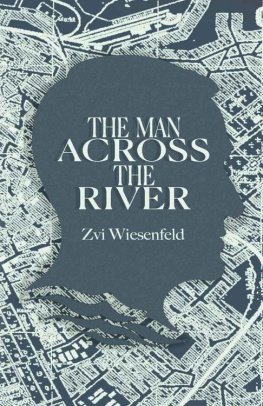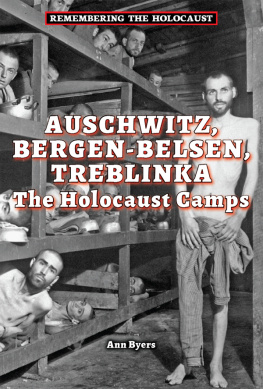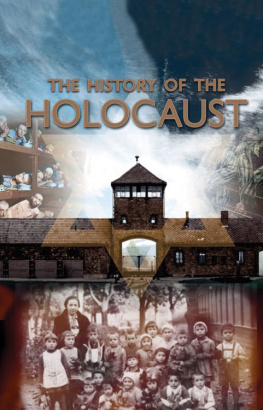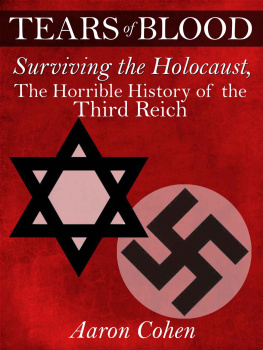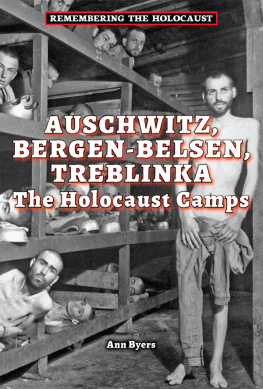Jacket copyright 2018 by Hachette Book Group, Inc.
Hachette Book Group supports the right to free expression and the value of copyright. The purpose of copyright is to encourage writers and artists to produce the creative works that enrich our culture.
The scanning, uploading, and distribution of this book without permission is a theft of the authors intellectual property. If you would like permission to use material from the book (other than for review purposes), please contact permissions@hbgusa.com. Thank you for your support of the authors rights.
Hachette Books is a division of Hachette Book Group, Inc. The Hachette Books name and logo are trademarks of Hachette Book Group, Inc.
The publisher is not responsible for websites (or their content) that are not owned by the publisher.
Szmulek Rozental was a boy, an orphan, and a refugee when he arrived in Boston in 1949. At the time, he suffered from tuberculosis, the mildest of the wounds he bore from his years in ten Nazi death camps. He had come through horrors that no person, and certainly no child, should ever have to endure.
In Boston, he would remake himself from a sickly survivor to an all-American hero.
Steves story came to stand as a testament to the freedom and liberty that too many of us take for granted. He understood what America stood for long before he set foot on the nations soil, cherishing the small American flag given him by a US soldier in Europe. He relished the opportunity to raise children here free from fear and want. He earned an advanced degree in psychology so he could help others who suffered. He would spend the balance of his life giving back. But he wanted something more, something utterly essential for the survival of his own spirit and for the memory of his and so many others families: for Americans, and Bostonians especially, to learn and remember the lessons of that special scourge known as the Shoah. He demanded that we never forget the hatred, nor the power of hope. He understood that the right memorial could express those fundamental principles.
Thats where I came into Steves story.
I knew Steve from when both of us were youth outreach workers in the streets of South Boston and Dorchester. Steve was a beloved figure among the kids he mentored. When I ran for mayor the first time, in 1983, several of Steves kids were with me. They shared my philosophy that government should serve everybody, most of all those who work hard to raise families and must scrape from one paycheck to the next. They believed in building bridges, the way Steve and I were trying to do, between diverse neighborhoods and long-suffering communities.
By the time he came to see me about his vision for a Holocaust memorial, Steve already was a hero of our mayoral administration. People kept shaking his hand and hugging him as he sat in the lobby. In his mind, however, he was just Szmulek Rozental from Lodz, Poland, a shtetl kid coming hat in hand to the mayors office.
We talked about the past and the future that morning as we looked out over historic Dock Square. What the memorial would look like was still to be determined. But where it should be seemed instantly clear to both of us. When I said I agreed that it should go on the mall between Union and Congress Streets, where it would make a statement as dramatic as the history it would honor, Steves eyes lit up. He envisioned the memorial standing shoulder-to-shoulder with Bostons emblems of liberty and social justice.
From the mayors office, we could see Faneuil Hall, with its second-floor room that will be known forever as the Cradle of Liberty. Peter Faneuil, a refugee like Steve, had given the city a building where abolitionists would light the fuse that became the war to end slavery. A century later, another child of Boston, John F. Kennedy, delivered an election-eve speech there in which he vowed to be the champion of the aged, and of children, and the handicapped, and the friend of those who have been forgotten, of those who have not been remembered, of those who have needed a helping hand, and of those who needed a good neighbor.
In front of the hall stands the statue of Samuel Adams, looking ready to once again take up the fight for freedom and liberty. Adams wrote and spoke thousands of words championing liberty and freedoms, but none were more powerful than his simple rejoinder when someone tried to make a gift to his family of a woman kept in human bondage. A slave cannot live in my house. If she comes she must be free.
Mere feet from Mr. Adams sits James Michael Curley, dressed in his typical three-piece suit. In life, he often crowned his outfit with a perfectly blocked homburg. But he grew up not in finery but in dire poverty. His parents escaped death and starvation in Ireland by making their way to Boston. Both parents were refugees, having survived the coffin ships to start a new life in Boston, just as Steve Ross would. Jim Curley gave back as our Mayor of the Poor. He built public schools and health centers, public beaches and public baths.
Just out of view of the memorial is the place where a black man and an Irishman became the first to die in our War of Independence. Both were gunned down by English troops in front of the Old State House in the Boston Massacre.
The Holocaust memorial, I said that morning, had to be in that historic company. And so it is, thanks most of all to Steve Ross. The rest, as you can see by the six towers that bear witness there today and by this magnificent book that brims with Steves moral voice, is history.
Ray Flynn is the former mayor of Boston and US ambassador to the Vatican
The road from Warsaw to Krasnik was heavy with gloom. Along it, miles of forests, filled with arrow-straight deciduous trees, merged into the gray winter sky. Occasionally, a small farmhouse would dot the landscape.
On that day, it was cold with a wet snow falling. It was seventy-one years after the Holocaust. It happened to be my birthday, but it felt joyless as my mind was elsewhere. I was imagining how cold my father, Steve Ross, must have been, surviving five of these winters, wearing only paper-thin pajamas. These were the woods he attempted to hide in, only to be captured by Nazis and sent to a series of ten concentration camps until his liberation from Dachau on April 29, 1945.
The purpose of my visit to Krasnik was to trace the final days of my fathers murdered familymy grandparents, six aunts and uncles, and two cousins. After the Nazis arrived in Lodz in September 1939, my father, then an eight-year-old boy, and his family fled from their home with whatever possessions they could carry. They headed eastward, attempting to reach the Russian border. Instead, they were trapped in Krasnik, a small town near Lublin.


